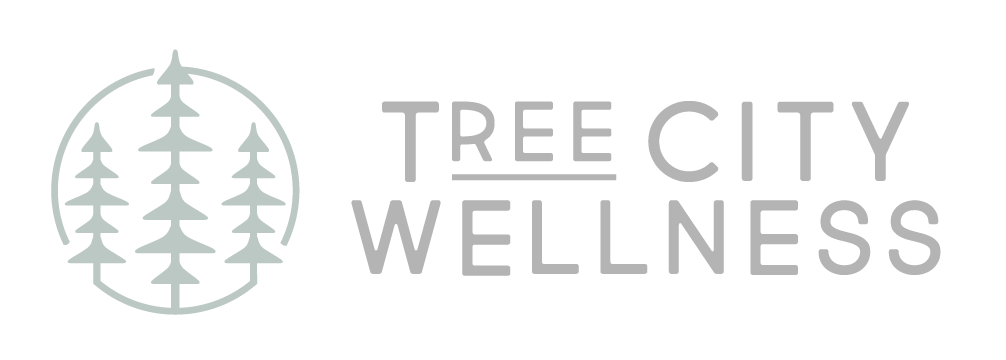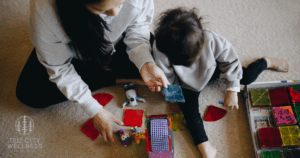“Where did you learn to burp a baby like that?” A friend commented while I awkwardly held my newborns chin with one hand and patted his back gently with the other.
“The internet,” I replied.
This friend knows about my life and my history well. In that moment it was a completely valid question and an honest answer. As a new mother, the internet has been my primary resource for most topics involving caring for a baby; And as I have asked around to other new moms, it’s been a resource for them as well. From mommy-blogs to motherhood Instagram accounts, we are turning to internet resources more and to our actual mothers less. It’s true that we know more about the science of babies than we did when our mother’s were mothering us — new research on baby and child development emerges every year — though there is something primal about hearing stories of the challenges and rewards of new motherhood passed down from generation to generation opposed to a webpage we view on our cell phone screen. The old adage, “It takes a village to raise a child,” still rings true, so why do we resort to Google to search for support instead of our families?
There is a notion in the therapy world that many people come to talk about their mother. As a therapist, I can confirm that many individuals I have worked with over the years do struggle with their relationship with their mother and it can cause a great deal of distress as an adult, particularly when they begin to grow their own family. Of course our mothers are not to blame for our problems and are not the only reason people choose to seek therapy – no one is truly responsible for our thoughts and actions aside from ourselves. However, our early life experiences do influence our view of the world as adults and the dynamics of the mother-child relationship is a phenomena worth looking into.
The shift in identity for a woman as she becomes a mother is strong. Some aspects of new parenting feel instinctual, like second nature, while others feel foreign and confusing. Though birthing and raising children is incredibly common, it is not necessarily natural and definitely not easy. From the moment of conception the woman’s body begins to build a home for their child. After birth, their hormones continue to work together to create an environment that assures the baby’s survival and creates a strong bond among them. Though, as many of us know, this strong beginning-of-life bond does not guarantee a positive future relationship. It does however, create a lifelong connection that can be challenging to define. But why does this relationship that literally generates new life become so complicated for some people? Why is there such an inherent belief that adult children should be close to their mothers and when they are not, it’s seen as a problem? Why isn’t it always easy to have a good relationship with our mothers to begin with? Has a history of not supporting mothers in the way that they need actually fostered an attitude of resentment for their children?
Often, the struggles that I see with mother-child relationships relate to unhealthy family patterns passed down through generations. The individuals that enter therapy with a desire to talk about their mother are not intending to place blame, but instead are working toward breaking those patterns and securing healthier patterns for future generations. I have reflected more recently on the challenges I’ve watched my clients face with their relationships with their mothers and pondered on questions related to what it means to be a ‘good parent’ or a ‘good mom.’ I know I am not alone in my thoughts; Any parent has likely thought similar things, though with the many hurdles in life some of these ideals are easy to lose sight of over time.
Fortunately, in today’s world there are efforts being put forth to normalize the challenges of motherhood and the relationship we have with it. The more we normalize the complexities of this life-altering experience, the greater empathy we can have for those who struggle with the mother-child relationship and in turn, support them in finding ways to fix it. Furthermore, if we allow ourselves to openly discuss the idea that the most rewarding experience of life can also be the most difficult; Or if we continuously remind mothers that caring for themselves (physically, mentally, emotionally, spiritually) allows them to be better caretakers for their children; Or if we work toward recreating the supportive village that many families have lost — Then we are assisting in setting mothers up for success in securing positive future relationships with their children.
As a new mother myself who is interested in breaking generational, unhealthy mother-child patterns I ask these questions: Can we be role models of confidence and self-love so our children can learn to love themselves? Can we allow our children to grow into who they are instead of who we want them to be? Can we respect our children as much as we want them to respect us? Can we listen to our children twice as much as we talk? Can we commit to being authentic and vulnerable in everything we do? No person or parent is perfect — it’s not even realistic to try to be perfect. Ultimately, we are all a product of the environment we grew up in and we do the best we can with the knowledge we have at any given time. However, it IS realistic to continue to strive toward better understanding ourselves and supporting others; To being genuine and honest and loving to ourselves, our children, and to those around us. Though growth is hard and change takes time, the path toward a future with healthier relationships is undoubtedly worth the effort.





